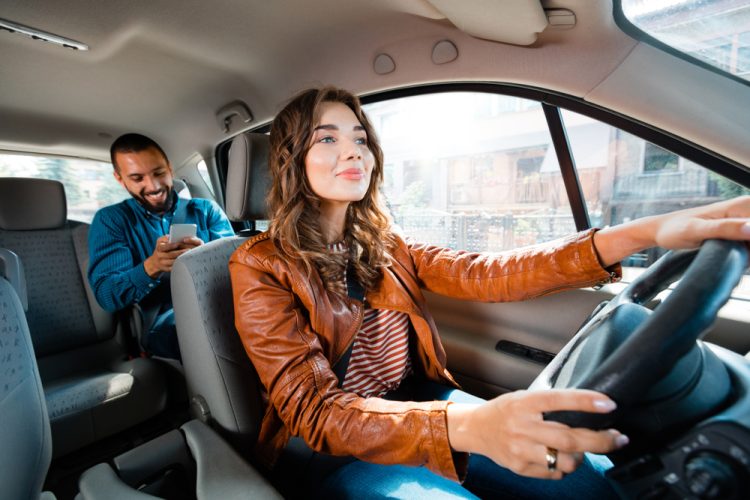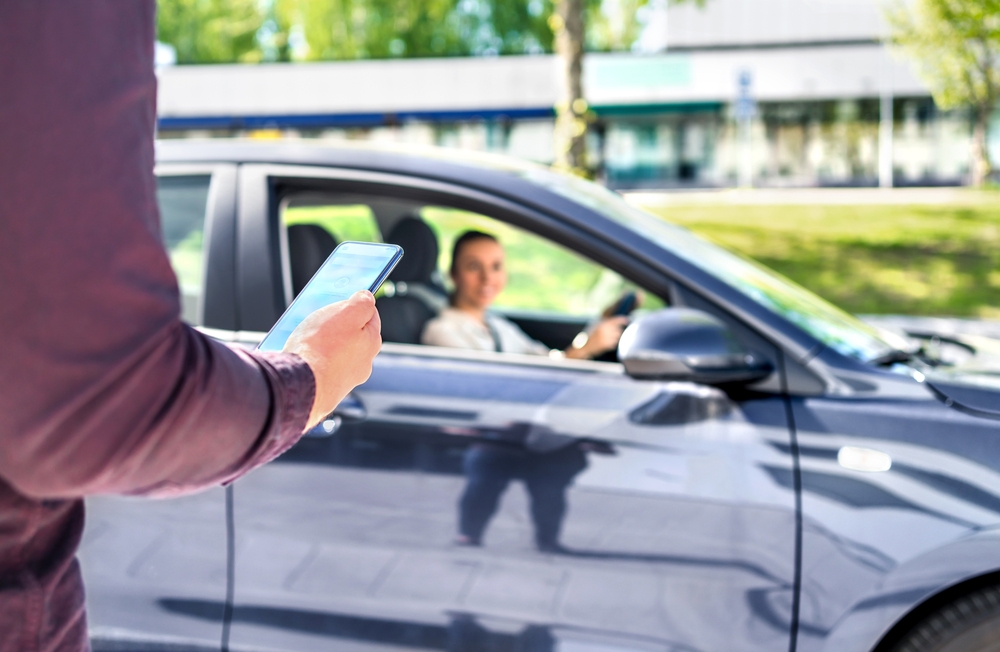
Driving for Uber or Lyft can be a great way to earn extra money, but you must protect yourself by having car insurance for ridesharing. That’s right, your personal auto policy has limits and may not cover you because you’re using your car for business purposes. Technically, you are acting as a “livery” in that situation, making your personal policy invalid at certain points of each rideshare journey. What about the policy of the Transportation Network Company (TNC), or rideshare company, for which you’re working? They will cover damages for which you are liable, but much like your personal policy, only at specific times of your trips.
All things considered, if you want total peace of mind as a rideshare worker, you need more information about an additional rideshare policy.
How Rideshare Insurance Works
If you ask a TNC about rideshare insurance, they will tell you they don’t require it. That doesn’t mean you shouldn’t have it. For comprehensive coverage, you should have a personal auto insurance policy with a rideshare endorsement. Here’s how a typical scenario involving car insurance coverage for ridesharing services works.
- When your rideshare app is turned off, your personal policy kicks in. In the event of an accident, you are covered for whatever damage is claim worthy.
- Once you turn your app on, your personal policy is no longer in effect. At this point, the rideshare company policy likely only provides limited coverage for this time period. This is where rideshare insurance should take over and pay for any cost due to vehicles, drivers, and passengers.
- After you agree to pick up a fare, the policy of the TNC should cover any potential problems.
Let’s face facts: You’re driving for a rideshare service to make extra money, not be on the hook for potentially thousands of dollars (or more) in damages. Why not get the information to make sure you’re fully covered?
How Much Does a Rideshare Insurance Policy Cost?
Of course, rideshare coverage is only worth it if the cost is affordable. Good news: Typical rideshare policies can be as low as around $6 per month, depending on the coverage you need. The most you should expect to pay might be around $30 per month. When you consider how many fares you can tote around town and beyond in one evening, this additional cost fades into obscurity.
The recommended course of action is to call your provider and ask for information about your options. Your auto insurer might have a comprehensive policy that combines your personal liability insurance coverage with a rideshare endorsement. In this case, you might be eligible for a discount. When you consider the risk involved with being an Uber driver or Lyft driver and weigh it against the minimal cost, it makes sense to at least inquire about rideshare insurance.
Do Delivery Service Drivers Need Additional Coverage?
If you’re working for on-demand delivery app companies like Grubhub, Instacart, and Uber Eats and were thinking, “I’m glad I’m not doing ridesharing services,” think again. In those cases, you need to have personal automobile insurance at a minimum (so do rideshare drivers). You can drive for most delivery services without a commercial policy as long as your primary provider approves, but there may be policy limits and many companies won’t let you use personal liability insurance if you drive for business purposes. You must address these coverage gaps if you don’t want the risk of paying an exorbitant bill in the event of a collision.
Another thing to keep in mind is that as a delivery driver, you’re on the road a lot, which means your chances of getting into an accident are much greater than the average driver. If you’re already driving for a food or package delivery service, or you’re in the process of signing up to become a driver, you should definitely ask your provider about additional coverage options for delivery drivers.

A Personal Auto Insurance Policy Is Still a Must-Have
The most critical insurance item to consider when driving for a ridesharing company or delivery service is to have a personal auto policy in place first — one that includes comprehensive coverage and collision coverage and has the automobile insurance required by state law. Without this foundational piece, you could find yourself in dire straits. The policy of your TNC will usually include about $1 million worth of third-party liability coverage. If, however, others are badly injured or worse in a car accident for which you are deemed responsible or negligent in some manner, you could be on the hook for much more than that if you don’t have full personal coverage.
You Have Options
Flexibility is the key to any policy. The term “one-size-fits-all” doesn’t apply to automobile insurance policies any more than it does to athletic shoes or anything else. That’s why most providers offer a variety of options, including policies that cover property damage. A good insurer will make sure it has customizable terms that fit your needs at the right price level.
Depending on the exact policy you hold, a rideshare policy can be quite comprehensive. Nevertheless, you might not need the most expensive option. Work with your provider and choose a personalized coverage package that works best for your unique financial situation.
Can I Cover More Than One Vehicle?
If your family dynamic is like most American households of today, you likely have more than one personal vehicle in your driveway or garage. You will want all personal vehicles covered if you want to use different cars for your rideshare duties. Maybe you have a traditional sedan for most trips to the grocery store and soccer practice, as well as an SUV with all-wheel-drive (AWD) for tougher driving conditions.
On most days, you probably take the family car for your rideshare services. What happens when it snows a bit or you encounter another need for AWD? The point is, you might want the flexibility to be able to take either vehicle for your side hustle when the time is right. In this case, you need to tell your provider about each of the vehicles you want to be covered. Whereas this may be convenient, it may not be cost-effective. The only way to make an informed decision is to contact your agent.
Who Do You Call When You’re in a Car Accident?
You should always contact the police first if you are ever in an accident. Once you call the authorities, it’s important to find out if the other driver is also properly insured. There can be a lot of distraction at the scene of the accident, and there is nothing quite like the not-so-delicate sound of crunching metal, especially when you’re not expecting it, to disorient you. Most of us have been there at least once in our lives. When you get out of the car to check the damage, a sigh of relief washes over you when you remember you’re fully covered.
If you’re involved in an accident as a rideshare worker or delivery service driver, you want the authorities to record an accurate account of the situation. Your next call should be to your personal auto insurance agent, as it’s not always crystal clear which company will process the claim when a rideshare company is involved. Finally, your third call should be to your employer.
As is the case in most all life situations, honesty is the best policy. You don’t want to hide anything from your automobile insurance agent because you could risk being dropped if they find out about an unreported accident. You also want to make sure you are forthright with your employer in case any litigation is filed.
Your Current Provider May Not Offer Rideshare Coverage
Not all insurance companies offer rideshare policies, nor is coverage available in all states. If your current provider doesn’t offer rideshare insurance and you want to drive for Uber, Lyft, another TNC, or even a delivery service, you should shop around for a more comprehensive and collaborative provider.
Find Affordable Rideshare Insurance Online Today
For continued safety and coverage in your side hustle journey on the open road, contact Freeway Insurance at 800-777-5620 or get a free quote online for rideshare insurance to ensure you get the affordable and complete coverage you need.



